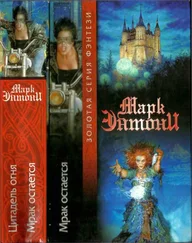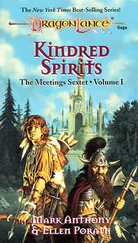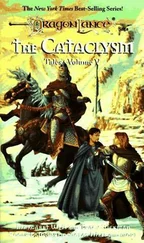Марк Энтони - The Cataclysm
Здесь есть возможность читать онлайн «Марк Энтони - The Cataclysm» весь текст электронной книги совершенно бесплатно (целиком полную версию без сокращений). В некоторых случаях можно слушать аудио, скачать через торрент в формате fb2 и присутствует краткое содержание. Год выпуска: 1992, Жанр: Фэнтези, на английском языке. Описание произведения, (предисловие) а так же отзывы посетителей доступны на портале библиотеки ЛибКат.
- Название:The Cataclysm
- Автор:
- Жанр:
- Год:1992
- ISBN:нет данных
- Рейтинг книги:5 / 5. Голосов: 1
-
Избранное:Добавить в избранное
- Отзывы:
-
Ваша оценка:
- 100
- 1
- 2
- 3
- 4
- 5
The Cataclysm: краткое содержание, описание и аннотация
Предлагаем к чтению аннотацию, описание, краткое содержание или предисловие (зависит от того, что написал сам автор книги «The Cataclysm»). Если вы не нашли необходимую информацию о книге — напишите в комментариях, мы постараемся отыскать её.
The Cataclysm — читать онлайн бесплатно полную книгу (весь текст) целиком
Ниже представлен текст книги, разбитый по страницам. Система сохранения места последней прочитанной страницы, позволяет с удобством читать онлайн бесплатно книгу «The Cataclysm», без необходимости каждый раз заново искать на чём Вы остановились. Поставьте закладку, и сможете в любой момент перейти на страницу, на которой закончили чтение.
Интервал:
Закладка:
IV
Look around you, my son
for the fire in Arion’s singing:
For where in this country,
in forgotten Caergoth,
where does a single village burn?
Where does a peasant suffer
and starve by the fire of your father?
Somewhere to the east
before a white arras,
gilded with laurel
and gold adulation,
the bard sings a lie
in a listening house,
and Caergoth burns
in the world’s imagining,
while the bard holds something
back from his singing,
something resembling the truth.
But let not the breath
of the fire touch your father,
Orestes, my son,
my arm in the dwindling world,
my own truth
my prophecy,
soothed the effacing mother,
and darkly and silently
Orestes listened, the deadly harp
poised in his hand circuitous.
And the word turned to deed
and the song to a journey by night,
and the listening years
to a cloak and a borrowed name,
as the boy matured
in his mother’s word,
and the harp strings droned
in the facing wind
as he rode out alone, seeking Arion.
V
High on the battlements
of Vingaard Keep
as the wind plunged over
the snow-covered walls,
Orestes perched
in a dark cloak huddled,
the window below him
gabled in light,
and he muttered and listened,
his honored impatience
grown loud at the song
of the bard by the fire.
Melodiously, Arion sang
of the world’s beginning,
the shape of us all
retrieved by the hands
of the gods from chaos,
the oceans inscribing
the dream of the plains,
the sun and the moons
appointing the country
with light and the passage
of summer to winter,
the bright land’s corners
lovely with trees,
the leaves quick
with life with nations of kestrel
with immaculate navies of doves,
with the first plainsong
of the summer sparrow
and the song from the bard
sustaining it all,
breathing the phase
of the moon’s awakening,
singing the births
and the deaths of the heroes,
all of it rising
to the ears of Orestes.
And rising beyond him
it peopled the winter stars
with a light that hovered
and stilled above him,
as nightly in song
the old constellations
resumed their imagined shapes,
breathing the fire
of the first creation
over the years to the time
that the song descends
in a rain of light
today on your shoulder
with a frail incandescence
of music and memory
and the last fading green
of a garden that never
and always invented itself.
For the bard’s song
is a distant belief,
a belief in the shape of distance.
All the while as the singing
arose from the hearth and the hall,
alone in the suffering wind, Orestes
crouched and listened
slowly, reluctantly
beginning to sing,
his dreams of murder quiet
in the rapture of harp strings.
VI
Hieronymo he called himself,
Hieronymo when down from the battlements
he came, supplanted and nameless
entering the hall
in the wake of the wind and darkness.
Arion dreamt by the fire,
and his words were a low, shaping melody:
the tongue of the flame
inclined in the hall of his breath
and the heart of the burning
was a map in the eye of Orestes,
who crouched by the hearth
and offered his harp
to his father’s slanderer,
smiling and smiling
his villainous rubric,
Teach me your singing, Arion , he said,
adopting the voice and the eye
of imagined Hieronymo
deep in disguises,
and none in the court
knew Alecto’s son—
Teach me your singing, memorable bard,
The light in the heart of winter,
Singer of origins, framer of history,
Drive my dead thoughts over the winter plains
Like withered leaves to quicken a new birth!
Old Arion smiled
at the boy’s supplication
at the fracture of coals,
at the bright hearth’s flutter
at the nothing that swirled
at the heart of the fire:
for something had passed
in his distant imagining,
dark as a wing
on the snow-settled battlements,
a step on a grave
he could only imagine
there in the warmth of the keep
where the thoughts were of song
and of music and memory,
where something still darker
was enjoining the bard
to take on the lad
who knelt in the firelight.
Some things, he said,
The poet brings forth.
Others the poet holds back:
For words and the silence
Defining each other
In spaces of holiness.
Softly the old hand
rose and descended,
the harp-handling fingers
at rest on the brow
of the bold and mysterious boy.
The apprenticeship was sealed
in Orestes’s bravado,
the name of Hieronymo
fixed to the terms of indenture,
all in the luck of an hour,
and depth of a season,
but somewhere within it
a darker invention
that sprawled in the depths
of the heart and the dwindling earth.
VII
So masked in intention,
in a sacred name
for a year and a day
Orestes surrendered
his anger to music and wind,
apprenticeship honed
on the laddered wires
of a harp that the gods whispered over,
of a wandering in lore
and the cloudy geographies
tied to the fractured past,
and he dwelt by the poet
and traveled to Dargaard
to the heart of Solanthus,
to imperiled Thelgaard,
to nameless castles of memory
where the knights abided
in yearning for something
that moved in the channels of history,
redeeming the damaged blood of the rose,
while the story that Arion sang,
his back to the dream
and incredulous fire,
discovered the years
and the fading arm of the sword.
Seven songs of instruction
arose from the fire and the dreaming:
the spiral of Quen
love’s first geometry
the wing of Habbakuk
brooding above the world
the circle of Solin
rash and recurrent heart
the arc of Jolith
dividing intention from deed
the white fire of Paladine
perfected song of the dragon
the prayer of Matheri
merciful grammar of thought
and the last one the high one
light of Branchala
that measures all song
in the shape of words
Alone in the margin
of darkness, Orestes
surrendered and listened
singing reluctantly, joyfully,
as the gods and the planets
and the cycle of years
devolved in a long dream of murder
and the cleansing of harp strings.
VIII
A year and a day the seasons encircled,
according to fable and ancient decrees of enchantment,
as the gnats’ choir of autumn surrendered to ice
and the turn of the year approached like a death
and the listening castles mislaid under snow.
Orestes’s apprenticeship led to a circle of fire,
where the harp he had mastered and the seven songs
and the fourteen modes of incalculable magic
circled him back to the night and the keep
and the wintry eyes of the bard singing memory
into flesh, into stone, into dreaming and wind,
and Arion , he said, and Arion, tell me of time
Of the rending of Krynn and betrayals.
The bard took the harp in the foreseen night:
for his memory darkened the edge of the past
when knowing devises the shape of creation,
and the Rending changed as he spoke of its birth
in the spiral of prophecy, the brush of its wing
on the glittering domes and spires of Istar
the swelling of moons and the stars’ convergence
and voices and thunderings and lightnings and earthquakes
and Arion told us that night by the hearth
that hail and fire in a downpour of blood
tumbled to earth, igniting the trees and the grass,
and the mountains were burning, and the sea became blood
and above and below us the heavens were scattered,
and locusts and scorpions wandered the face of the planet,
as Arion told us, and Orestes leaned closer
and Arion , he said, and Arion, teach me of time
Of the famine and plague and Pyrrhus Alecto.
Arion stroked the harp and began, his white hair
cascading across the gold arm of the harp
as though he were falling through song into sleep
and the winter stilled at the touch of the string,
and he sang the last verses as hidden Orestes
reclined and remembered and listened:
Down in the arm of Caergoth he rode:
Pyrrhus Alecto, The knight of the night of betrayals
Firebrand of burning that clouded the straits of Hylo,
The oil and ash on the water, ignited country.
Forever and ever the villages burn in his passage,
And the grain of the peasantry, life of the ragged armies
That harried him back to the keep of the castle
Where Pyrrhus the Firebringer canceled the world
Beneath the denial of battlements,
Where he died amid stone with his covering armies.
For seventeen years the country of Caergoth
Has burned and burned with his effacing hand,
A barren of shires and hamlets,
And Firebringer history hangs on the path of his name.
Orestes listened, as honor and song,
as blood and adoption warred in the cell of his thoughts,
his father redeemed by poison, by blade
by the song of the harp string rendered a garrotte,
closing the eloquent throat of Arion
silencing song, reclaiming his father,
and transforming Caergoth from desert to garden:
yet the hand of Orestes stilled in the arc of reprisal,
and into the night he warred and remembered,
and as I tell you this, memory wars with him still.
Интервал:
Закладка:
Похожие книги на «The Cataclysm»
Представляем Вашему вниманию похожие книги на «The Cataclysm» списком для выбора. Мы отобрали схожую по названию и смыслу литературу в надежде предоставить читателям больше вариантов отыскать новые, интересные, ещё непрочитанные произведения.
Обсуждение, отзывы о книге «The Cataclysm» и просто собственные мнения читателей. Оставьте ваши комментарии, напишите, что Вы думаете о произведении, его смысле или главных героях. Укажите что конкретно понравилось, а что нет, и почему Вы так считаете.
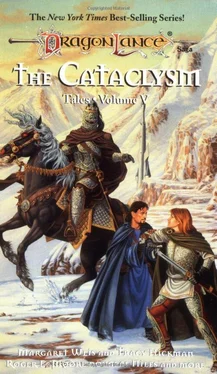
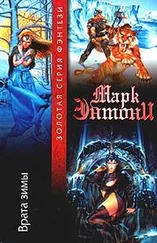
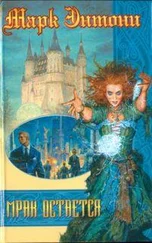

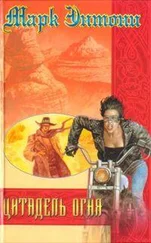
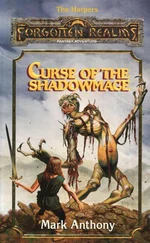
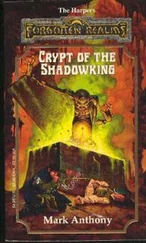
![Марк Энтони - Цитадель огня. Мрак остаётся [Авт. сборник]](/books/103986/mark-entoni-citadel-ognya-mrak-ostaetsya-avt-sbo-thumb.webp)
